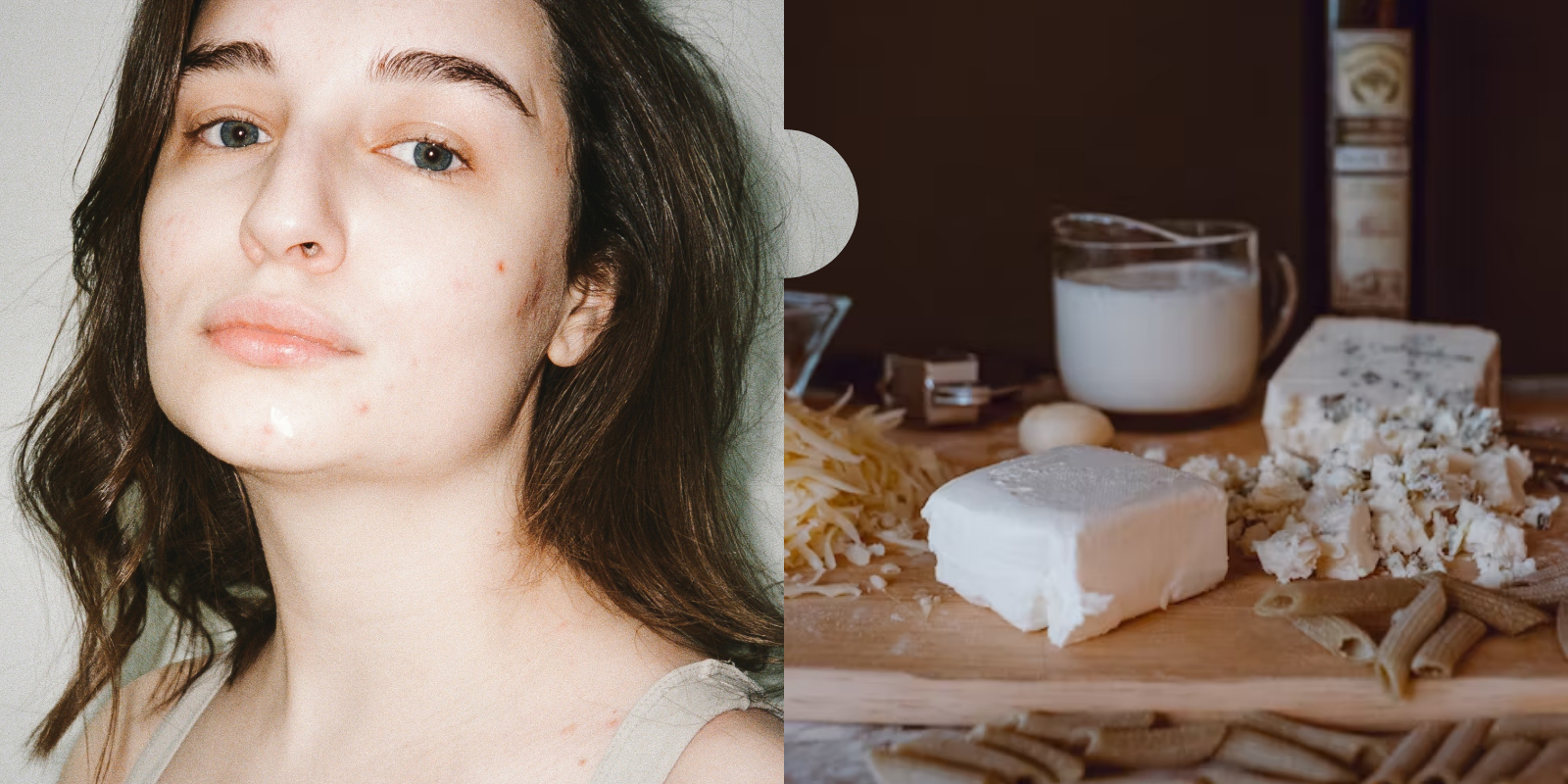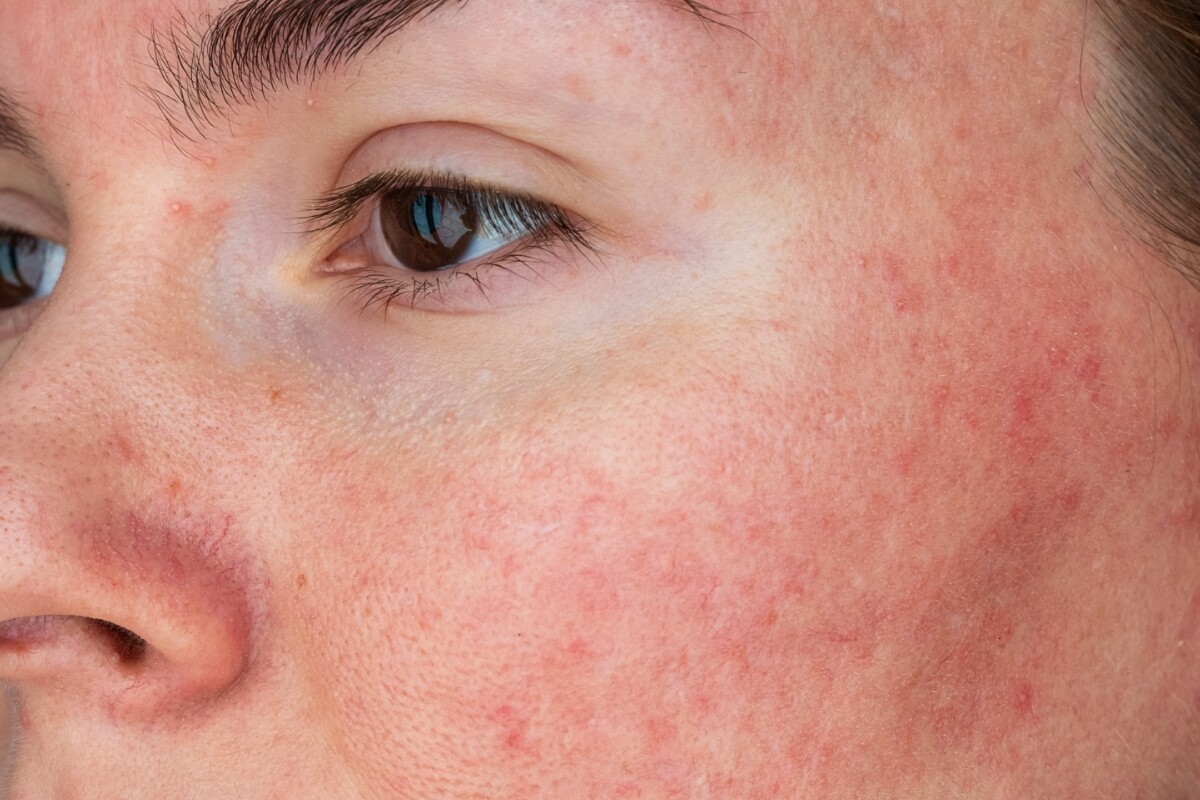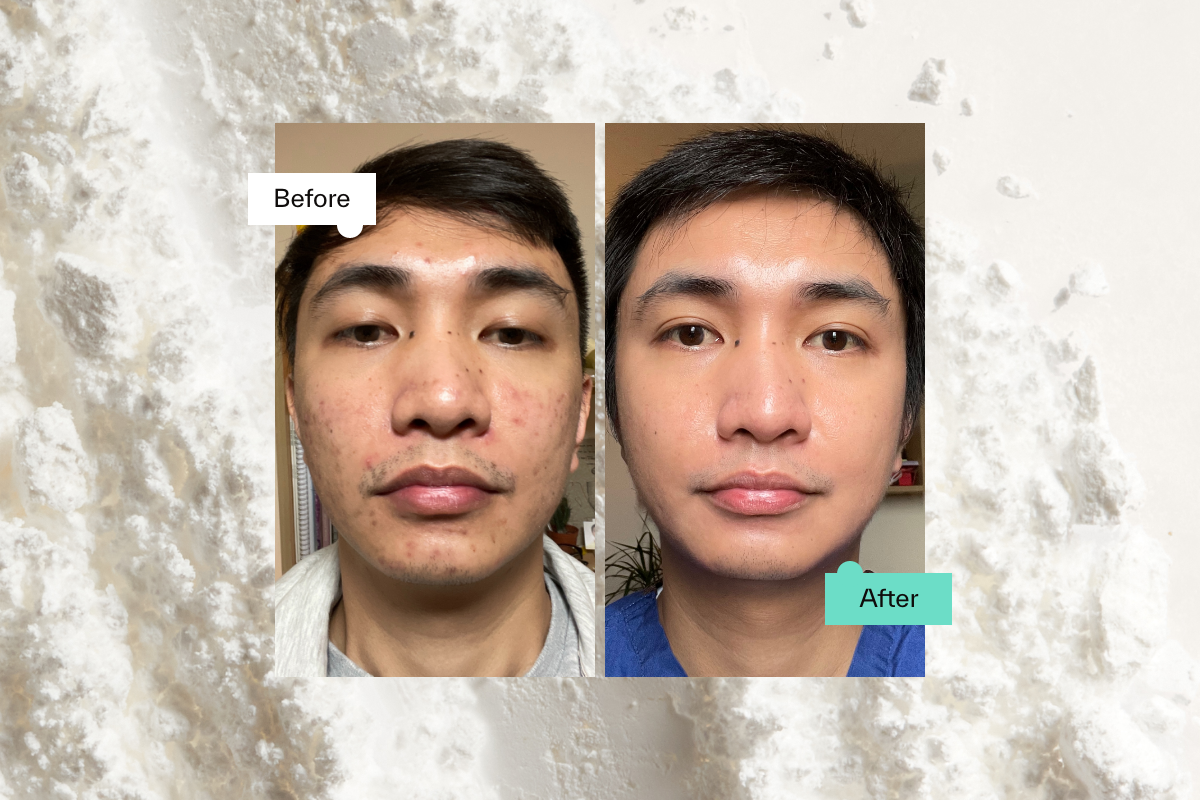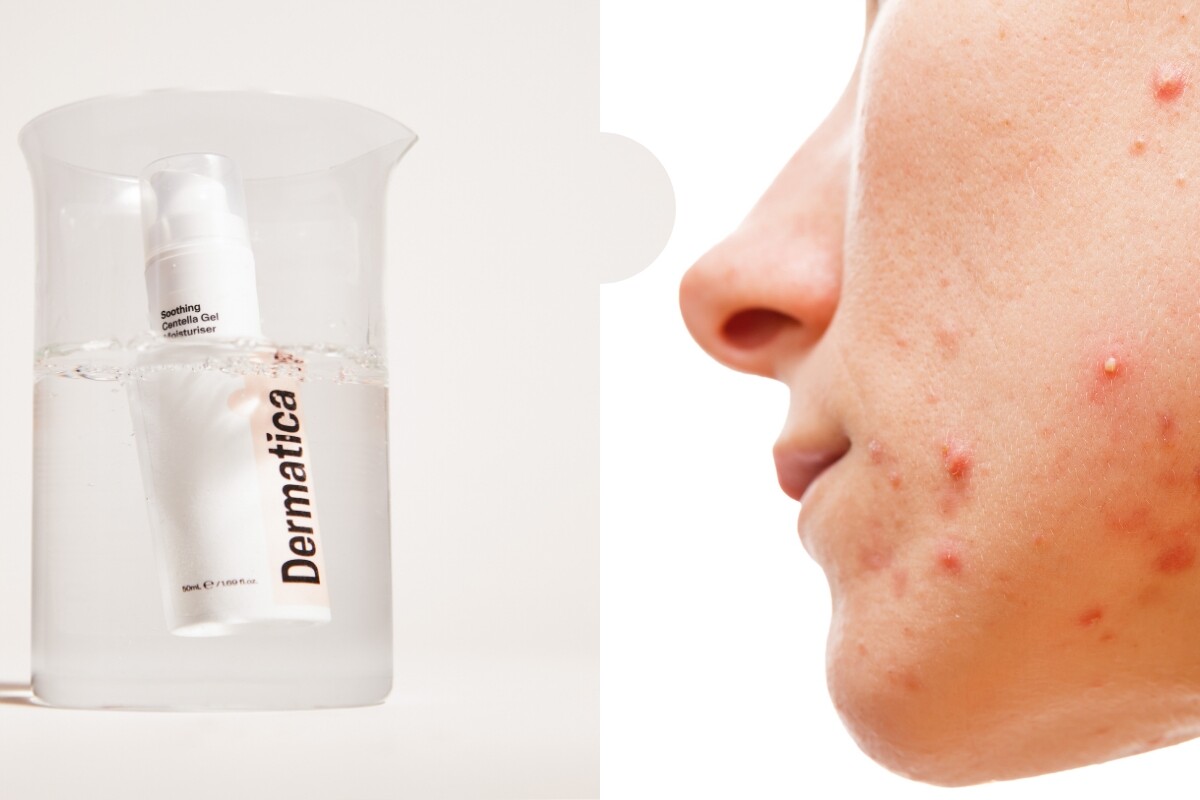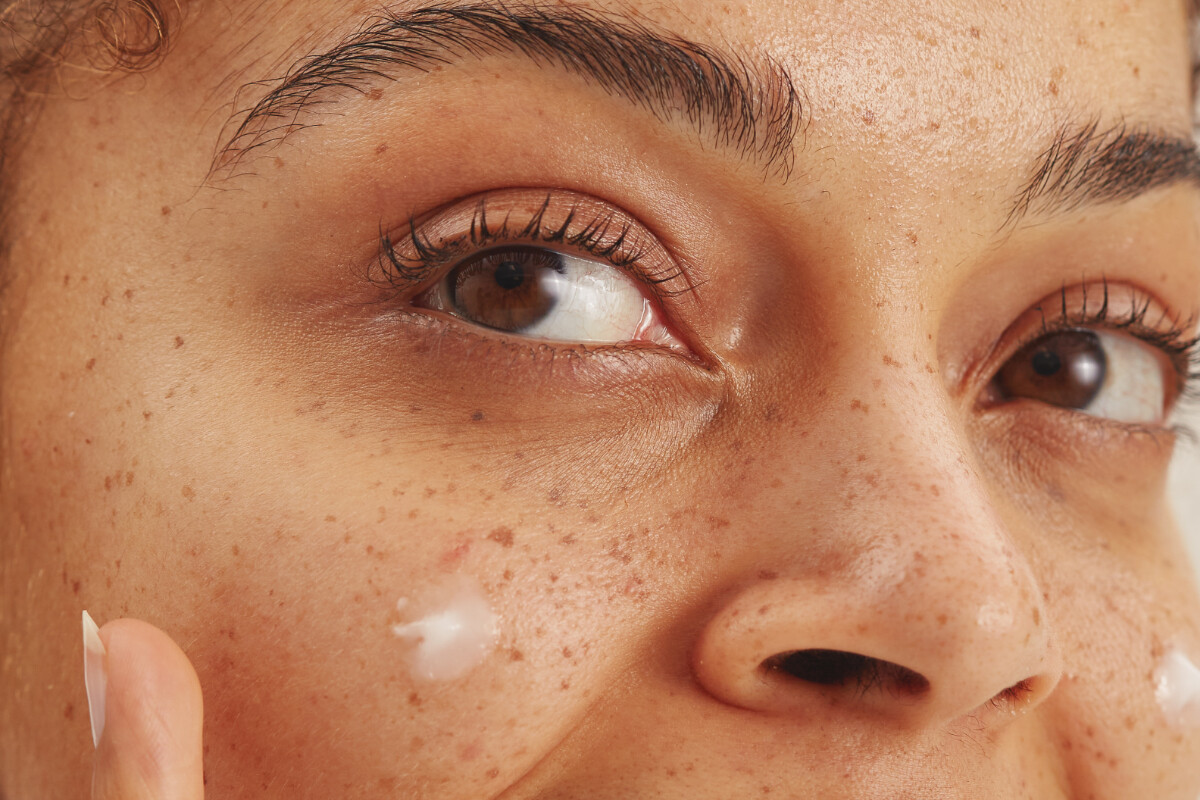Can your diet cause or trigger acne?
It’s a question we often get asked. And despite what you may hear, if you have a chronic skin issue like acne, then no diet alone – whether it’s supplementing, wellness trends, or adding or excluding certain foods – is going to cure it. However, you may notice certain foods trigger your acne and it’s important to know what may be associated with your own personal flare-ups.
Is clear skin just down to ‘good genes’?
The truth is, some people will have clear skin throughout their life because of genetic factors. For others, clear skin is harder to achieve because of their genetic tendency toward inflammatory skin conditions such as acne, rosacea and melasma.
The main steps to achieve clear skin if you have any of the skin conditions mentioned above is:
1. Get the right personalised formula to treat your skin. Preferably one that’s personalised to you by a licensed dermatology expert.
2. Use the right skincare, i.e. cleansers, moisturisers and broad spectrum sunscreen to support your treatment
3. Make sure you know which lifestyle factors play a role in your flare-ups, one of which may be diet.
The link between diet and acne
Although dietary changes aren’t part of the current UK recommendations by dermatologists, 92% of people with acne believe that diet has an effect on their condition. 71% tried to change their diet to clear their skin, reducing intake of chocolate, dairy and flavoured carbonated drinks. (1)
Some large studies also show that a high glycemic index diet – carbohydrate foods that are broken down quickly by your body and cause a rapid increase in blood glucose – is associated with flare ups in acne, however other studies show no evidence of this link.
On the other hand, there have been studies showing certain dairy products are associated with acne flare ups, and the guidance is reflected by the American Dermatological Association. They suggest cow’s milk may lead to acne breakouts. However, no evidence exists for products such as cheese or yoghurt.(2) (3)
Do dermatologists recommend dietary changes as part of treatment?
More research is needed to fully understand if certain foods can make acne worse. But if you suspect your diet is impacting your acne, there’s something you can try now.
Pay close attention to your breakouts and ask yourself:
– Do I notice more pimples after eating or drinking something specific?
– Does skipping that food or drink for a while seem to improve my acne?
It could be useful to keep a food journal. Ask yourself what happens when you exclude that food type for a day, a week or a month? Monitoring your skin’s response can help you pinpoint if a particular food or drink worsens breakouts for you personally.
Then discuss your findings with a dermatologist or licensed expert. They can provide guidance on whether avoiding certain foods may be beneficial for your acne. If you’re a Dermatica subscriber, you can reach out to our team at any time for advice. With their input, you can customise your diet to support clearer skin.
Can supplements help acne?
There’s too much mixed evidence to say for certain whether Vitamin D supplements can alleviate visible acne symptoms.(4) Zinc, on the other hand, does have evidence to support it as a supplement for clearing or reducing acne. A recent systematic review showing higher zinc levels found that patients who were treated with zinc had a significant improvement in acne spots compared to those who weren’t. (5)
Is your diet the trigger or the cause of acne?
If you’re already prone to acne, certain foods might cause symptoms to worsen, but it won’t be the reason you develop the condition in the first place. Because people respond differently to certain food types, it’s difficult to give general, blanket advice on diet.
However, many dermatologists recommend sticking to a healthy, balanced diet and prioritising:
Hydration: Water keeps the skin plump, supple, and sufficiently hydrated. Make sure you’re drinking enough water daily to maintain skin hydration and proper skin barrier function.
Antioxidants: Found in fruits and vegetables, these help protect the skin from free radicals, which can cause skin damage. Vitamins like C and E, as well as minerals like selenium and zinc, play a crucial role in this process.
Omega-3 Fatty Acids: Omega-3 fatty acids, commonly found in fatty fish, flaxseeds, olive oil and nuts, help maintain our skin’s lipid barrier, preventing moisture loss and reducing inflammation. This ultimately leads to a healthier, clearer complexion.
By providing your skin with the right nutrients, studies show you can improve your skin’s appearance, and overall health. But remember, a well-balanced diet can be beneficial for your skin, but it’s not the sole solution. For real answers to your concerns, start a free consultation with Dermatica today. Find out how to clear your acne, and start seeing results in as little as 8 weeks.
References:
1. Nguyen C, Beroukhim K, Danesh M, Babikian A, Koo J, Leon A. The psychosocial impact of acne, vitiligo, and psoriasis: a review. Clinical, Cosmetic and Investigational Dermatology. 2016 Oct;Volume 9:383–92.
2. Aghasi M, Golzarand M, Shab-Bidar S, Aminianfar A, Omidian M, Taheri F. Dairy intake and acne development: A meta-analysis of observational studies. Clinical Nutrition. 2018 May;38(3).
3. Can the right diet get rid of acne? [Internet]. www.aad.org. [cited 2020 Jun 19]. Available from: https://www.aad.org/public/diseases/acne/causes/diet
4. Zamil DH, Perez-Sanchez A, Katta R. Acne related to dietary supplements. Dermatology Online Journal [Internet]. 2020 Aug 15;26(8). Available from: https://pubmed.ncbi.nlm.nih.gov/32941710/
5. Yee BE, Richards P, Sui JY, Marsch AFleming. Serum zinc levels and efficacy of zinc treatment in acne vulgaris: a systematic review and meta‐analysis. Dermatologic Therapy. 2020 Aug 29;33(6).
Ash Sharma
Dr Ashwin Sharma is a medical doctor and writer with a particular interest in health technology, artificial intelligence and medical weight loss. He completed his training at the University of Leicester and Imperial College London, and has since been exploring the intersections of medicine, technology, and communication.

